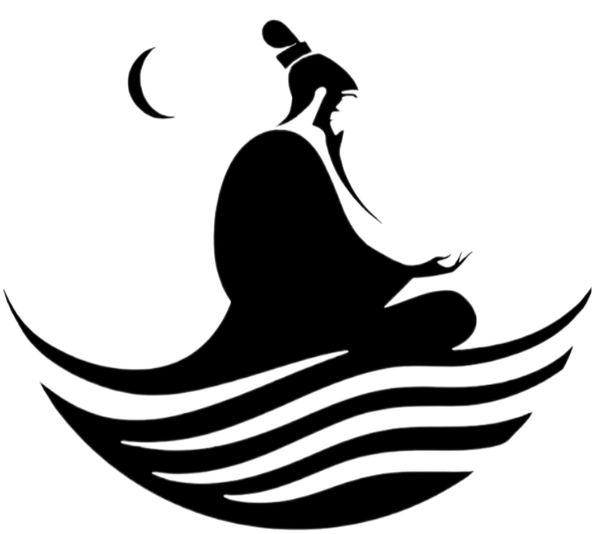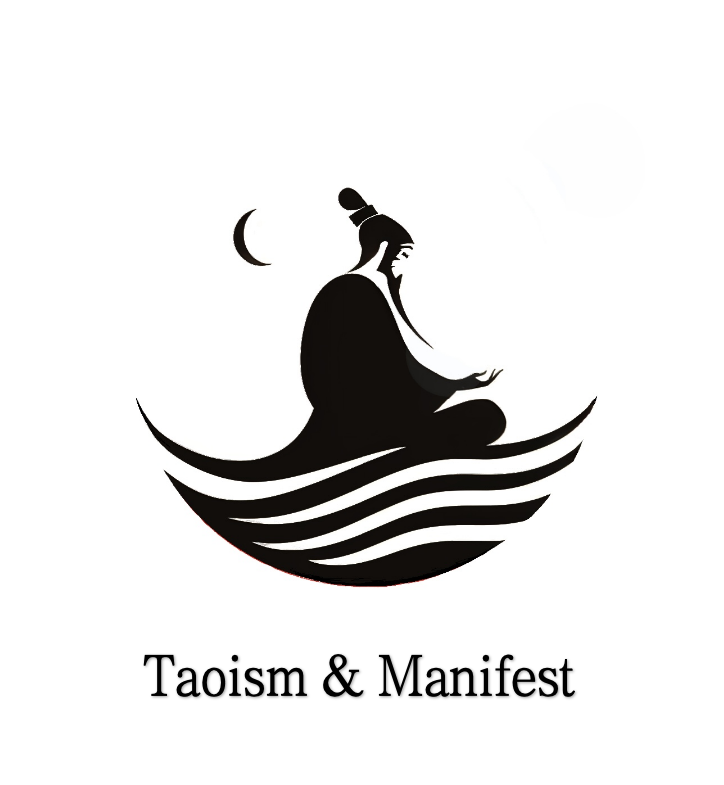
When you have disagreements at work, taoism says conflict is a sign that things need to be peaceful again. It is not just a problem to stop. The tao teaches you to be like water. Water is soft but also strong. You should use kindness and be able to change. Western ways often want fast answers. Tao wants you to be patient and balanced. You should also know yourself well. You can lead others without being bossy. You can help people without taking over. The tao can help you make good work friendships that last.
Key Takeaways
Be kind and patient like water to solve problems calmly. This helps you make strong friendships at work. Show others how to act by being humble and respectful. This makes a safe place where people feel listened to and important. Listen carefully and answer gently to stop fights and fix problems. Trust your team and let ideas come up on their own in meetings. Do not try to force or control others. Be ready to change and try new things. This helps your team get better and stay peaceful, even when things are hard.
Workplace Harmony

Core Taoist Values
Taoism gives many lessons to help you keep peace at work. It teaches you to care about balance, being humble, and keeping things simple. These ideas are what many companies want now. If you lead with kindness and a clear goal, your team feels safe. They also feel respected. This helps people work together and think of new ideas. Taoism tells you to find calm inside yourself. When you are calm, you can handle stress and fights better. You do not have to control others. You can show your team what to do by your actions. This way, everyone feels like they belong and matter. Many leaders use these tao ideas to build trust and make fair choices. When people look for harmony, everyone does better.
Tip: If you focus on harmony, your team will share ideas and fix problems together. This makes your workplace better and more creative.
Softness Overcomes Hardness
Tao says that being soft can beat being hard. Think about water moving around rocks. Water looks soft, but it can change even hard stone over time. In meetings, you can use gentle words and actions to fix problems. You do not have to argue or fight. You can listen and answer with care. Studies show that a calm space helps people feel safe to talk. This balance stops both silence and loud fights. You find a place where everyone can talk. Harmony does not mean you never have fights. It means you handle them in a way that helps everyone learn. When you use taoist ways, your team stays strong and ready for anything.
Strategies for Conflict-Free Meetings

Non-Contention in Meetings
You can use the taoist approach to conflict by practicing non-contention in your meetings. The tao teaches you to lead with humility and to empower others instead of trying to win every argument. When you focus on avoiding contention, you help your team feel safe to share ideas. This creates trust and makes it easier to solve problems together.
Non-contention means you do not force your opinions or try to control the outcome. Instead, you listen with empathy and keep a calm mind. You can guide others by asking open questions and showing respect for every voice. Meetings work best when everyone feels heard. If you notice tension, you can pause and let people cool down. This helps prevent conflict from growing.
Tip: Set ground rules for respectful talk and focus on the issue, not the person. This keeps the meeting peaceful and helps everyone find common ground.
Research shows that when you use non-contention, you create a safe space for honest feedback. You also help your team stay focused and avoid personal attacks. This taoist approach builds trust and helps with conflict resolution in a gentle way.
Balancing Self and Others
The taoist approach to conflict also teaches you to balance your own needs with the needs of others. You practice moderation and adjust your actions based on the situation. If you feel upset, you use self-regulation to keep your cool. This helps you find inner peace and self-cultivation, which makes you a better team member.
You can influence others by listening first and speaking with care. When you show understanding, people trust you more. You guide others by setting a good example and staying calm during conflict. If you act with too much ego, you might make things worse. If you always give in, you might feel stressed or unheard. The tao helps you find the middle path.
Listen to understand, not just to reply.
Speak with kindness and honesty.
Adjust your assertiveness to fit the moment.
When you balance self and others, you help meetings run smoothly. You support resolving conflict without force. This taoist approach creates a team where everyone feels valued and solutions come naturally.
Wu Wei in Practice
Effortless Action in Meetings
Wu Wei means you act without forcing things. In meetings, you can use Wu Wei by letting ideas flow and not trying to control every detail. You trust your team to share their thoughts. You step back and let solutions appear naturally. This is action over words. You do not need to speak the most or push your plan. Instead, you listen and guide when needed.
Many companies have found success with Wu Wei. For example:
Google lets employees spend time on their own projects. This freedom led to new ideas like Gmail.
Leaders who trust their teams and avoid micromanaging see more creativity and better teamwork.
Steve Jobs often let ideas grow on their own, showing how to lead without resistance.
When you use Wu Wei, you help your team feel safe and valued. You show that action over words can solve problems. You do not need to force results. You let things happen at the right time.
Tip: Try pausing before you respond in meetings. Sometimes, the best answer comes when you wait and let others speak first.
Adapting to Change
Change happens all the time at work. Wu Wei teaches you to stay flexible and open. You do not fight change. You move with it, like water around a rock. This helps you stay calm and find new ways to solve problems.
Studies show that people who use Taoist adaptability feel less stress and more hope. They work better with others and feel more confident. When you accept change, you build a strong team. You help everyone grow and learn together.
Stay open to new ideas.
Adjust your plans when things shift.
Support your team as they face new challenges.
You can use Wu Wei to guide your team through change. You do not need to control every step. You trust the process and help others do their best.
Practical Strategies
Deep Listening
You can start resolving conflict at work by practicing deep listening. This means you give your full attention to the person speaking. You do not interrupt or plan your reply while they talk. You listen to understand, not just to answer. When you do this, you show empathy and respect. People feel heard and valued.
A taoist leader models deep listening by staying calm and open. They do not judge or label ideas as good or bad right away. Instead, they let each voice be part of the conversation. This helps everyone relax and share honestly. When you listen deeply, you often find the real cause of the conflict. You can then address it gently and wisely.
Tip: Try nodding, making eye contact, and repeating back what you heard. This shows you care and helps avoid misunderstandings.
Soft Responses vs. Confrontation
When you face conflict, you have a choice. You can respond with force, or you can use a soft approach. The taoist approach to conflict teaches that softness overcomes hardness. If you answer with calm words and a gentle tone, you lower tension. You help others feel safe and open to solutions.
Let’s look at a comparison:
Situation |
Confrontational Response |
Soft Taoist Response |
|---|---|---|
A teammate disagrees loudly |
"You’re wrong. My way is better." |
"I see your point. Can we explore both ideas?" |
A deadline is missed |
"This is unacceptable. Who is to blame?" |
"Let’s look at what happened and how we can adjust next time." |
Soft responses do not mean you avoid the issue. You address the conflict directly, but with kindness and patience. Research shows that this approach builds trust and respect. Teams that use soft skills handle conflict better and grow stronger together. Confrontational methods often make things worse and damage relationships.
Note: Mastering soft responses takes practice. You can start by pausing before you speak and choosing words that invite discussion, not argument.
Application Scripts
You can use simple scripts to bring Taoist wisdom into your meetings. These templates help you respond softly and keep the conversation peaceful.
Soft Response Templates:
"I hear what you’re saying. Let’s see if we can find a solution together."
"Thank you for sharing your view. I’d like to understand more about your idea."
"Can we pause for a moment and think about what’s best for the team?"
"I appreciate your honesty. How can we move forward from here?"
Step-by-Step Guide for Taoist Conflict Resolution:
Pause and take a breath. Center yourself before reacting.
Listen deeply to all sides. Show empathy and avoid judging.
Respond with gentle words. Focus on the issue, not the person.
Invite everyone to share ideas for a solution.
Adjust your approach as the conversation flows. Stay flexible.
End with gratitude. Thank everyone for their input and effort.
The taoist approach helps you avoid using violence or harsh words. You flow with the situation, not against it. This method brings harmony and lasting solutions. You do not force outcomes. You trust that, with patience and openness, the best answer will appear.
Callout: When you use these scripts and steps, you help your team resolve conflict without stress. You build a culture of respect and cooperation.
Taoist philosophy reminds you that conflict is natural. It is not a problem to erase, but a chance to restore balance. By using these practical strategies, you become a taoist leader who guides with calm, humility, and wisdom.
Building a Taoist Meeting Culture
Encouraging Respect
You help your team when you show respect in meetings. Respect means you care about everyone’s ideas and differences. When you act with respect, trust grows. People feel safe to speak up. This makes teamwork easier for everyone. Teams that respect each other solve problems faster. There is less stress and more happiness.
A taoist leader knows trust is important for leading. You do not push your own ideas on others. Instead, you listen and guide with care. You lead by being patient and understanding. When you respect others, everyone feels important. This helps your team stay calm, even during disagreements.
Organizations that use Taoist conflict resolution teach mindfulness and listening. These skills help you answer with kindness and keep meetings calm. You learn to accept differences and find things you share. Over time, respect becomes normal, and your team feels more united.
Tip: Begin each meeting by letting everyone share their thoughts. This builds trust and starts the meeting in a good way.
Sustaining Harmony
Keeping harmony takes practice and focus. You need to use moderation in what you say and do. A taoist leader does not try to control everything. You trust your team and let answers come naturally. This helps people be creative and ready for change.
When you focus on harmony, you help people get along. You see fewer fights and more teamwork. Trust grows as people feel listened to and valued. You guide by showing a good example and staying calm. Real leadership comes from what you do, not your job title.
Taoist meeting cultures help teams stay flexible and creative. You remove blocks and let ideas move freely. This keeps your team strong, even when things change fast. Moderation and trust help everyone work together.
Callout: Harmony is not just having no fights. It means there is trust, respect, and balance in every meeting.
When you use taoism at work, you help your team find harmony and inner peace. Studies show that these methods reduce conflict and help people work together better. You can see more trust, creativity, and job satisfaction. Try using soft words and flexible thinking in your next meeting. Over time, this mindset helps your team stay strong and ready for change.
FAQ
How can I use Taoist methods if my coworkers do not know about Taoism?
You do not need to explain Taoism. You can show Taoist values by listening, staying calm, and using soft words. People will notice your peaceful approach and may follow your example.
What if someone keeps pushing their opinion in meetings?
Stay calm and use gentle words. You can say, “I hear your view. Let’s consider other ideas too.” This helps keep the meeting balanced and respectful.
Can Taoist methods work in fast-paced workplaces?
Yes! Taoist methods help you stay flexible and calm. You can adapt quickly and handle stress better. This makes you a stronger team member, even when things move fast.
Do I have to agree with everyone to keep harmony?
No, you do not need to agree with everything. You can share your thoughts kindly and listen to others. Harmony means respect and understanding, not always saying yes.
See Also
Reducing Work Stress By Practicing The Art Of Wu Wei
Learning Wu Wei Principles From The Story Of Butcher Ding
Taoism’s Wu Wei Method For Managing Anxiety Explained Clearly






